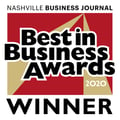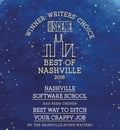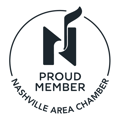I’m excited to introduce you to many of our Cohort 16 graduates here on our blog over the next several weeks. Some have already landed jobs. Others still come to the school while they conduct their job search. And most are very active in the community at meetups and hackathons. We miss having them here everyday, but we can’t wait to see where their journey takes them.
Be sure to listen to all of the graduates talk to our friend, Clark Buckner, about their journey into development and about their experience at NSS.
Check out all of the recent grads on the Cohort 16 class website.
It’s no secret that Nashville is known as Music City. While dozens of people move here every day to pursue a career in music, some of those who have been in the industry for a while are ready for a new chapter in their life. This group of graduates all came from careers in music. They bring skills like teamwork, creativity, and problem solving under pressure…all great skills for software developers. Here are their stories.
Sam Phillips
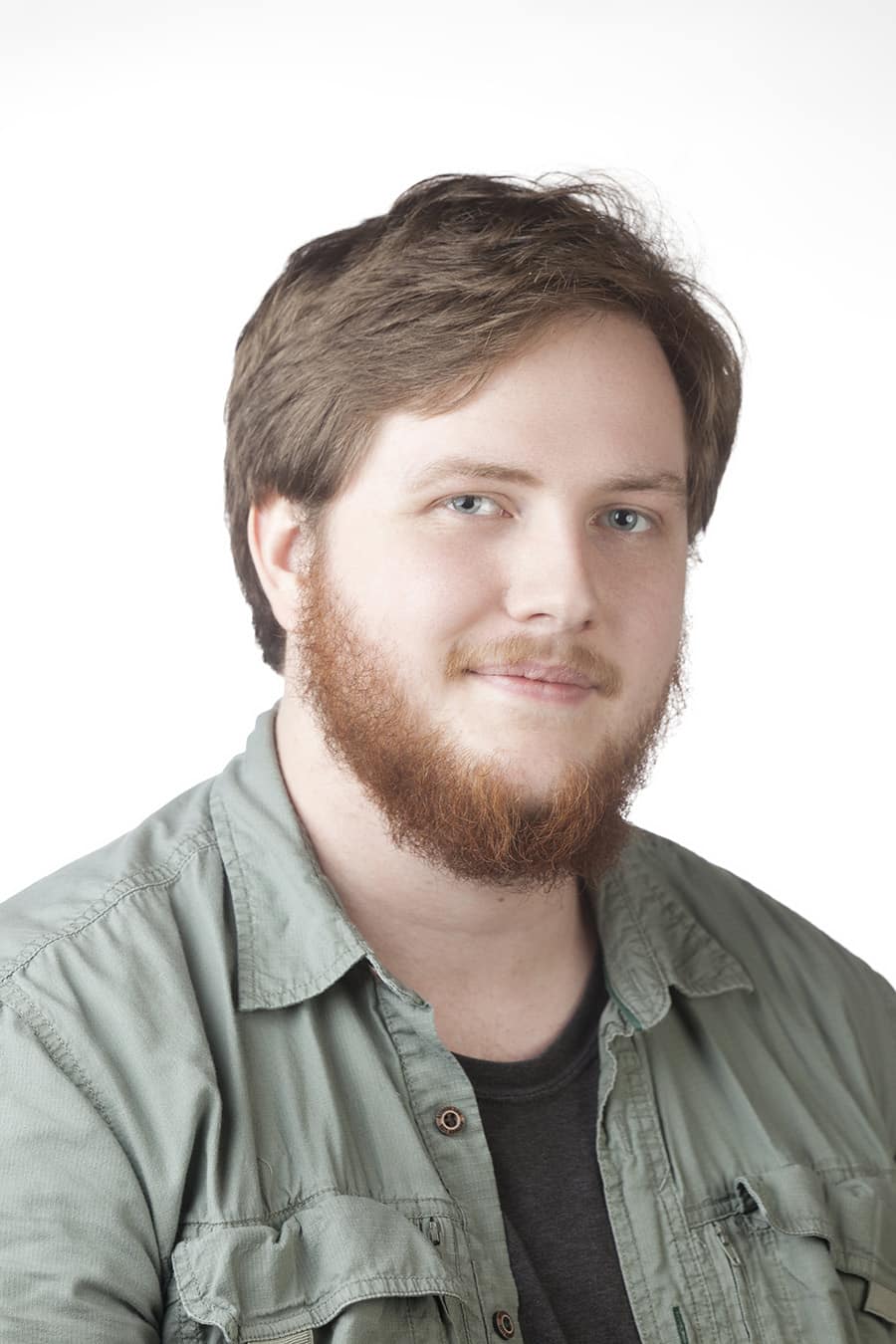 Sam Phillips was working odd jobs and making music with various bands. After meeting his fiancee, he decide to make a career change so he could better support his family. Sam was seeking a more structured form of creativity that would balance his creative and intellectual skills. He first heard of NSS from his cousin whom had attended a couple of years earlier. After learning about all that NSS has to offer, Sam enrolled in Cohort 16.
Sam Phillips was working odd jobs and making music with various bands. After meeting his fiancee, he decide to make a career change so he could better support his family. Sam was seeking a more structured form of creativity that would balance his creative and intellectual skills. He first heard of NSS from his cousin whom had attended a couple of years earlier. After learning about all that NSS has to offer, Sam enrolled in Cohort 16.
Sam enjoyed seeing all of his hard work come alive on a daily basis. He also enjoyed the challenge of working with different groups of students who thought through problems differently than he did. It wasn’t always easy. In fact, the last two weeks we’re probably the hardest for Sam. He shared, “My fiancee and I had our first baby on the same day that I wrote the first line of code for my final project. Both the application and my son turned out exactly as I hoped they would, and I consider myself infinitely fortunate for that.”
Sam’s advice for students?
Go down the rabbit holes. That's where the really fun stuff is. Just don't forget how to get back out into the light of familiarity.
For his front-end capstone, Sam built an app called Life Audio Sampler. The app was inspired by his love of sampling audio clips from videos within the songs he would create. However, the process of extracting the audio from the video was too time consuming for a two-second clip. Life Audio Sampler is a simple, intuitive app to collect audio samples from videos and play with those samples musically through a fun sampler interface. Sam built the app with AngularJS to utilize its two-way binding to achieve dynamic flow. The sample/patch catalog is stored on Firebase and the audio files are stored in a Google Cloud Storage Bucket.
Sam’s back-end capstone, MemoryTrunk, lets users share memories, advice, and perspectives on life through crowdsourcing. Sam shared, “The root idea of the application comes from the fact that millions of people go through similar, core life events (such as weddings, the birth of a child, death, etc.) and yet, for many of us going through these events for the first time, they are plagued with uncertainty due to lack of personal experience.” He built it by leveraging Django’s ORM for data handling and had his app up and running in just two weeks, all while adjusting to a new baby at home. “MemoryTrunk is connecting users and showing that not everybody has to learn something the hard way,” said Sam.
In his free time, Sam is making minor adjustments to MemoryTrunk and hopes to get it deployed on a VPS soon.
Listen to Sam’s interview with Clark Buckner about his journey and check out Sam’s profile.
Steven Holmes
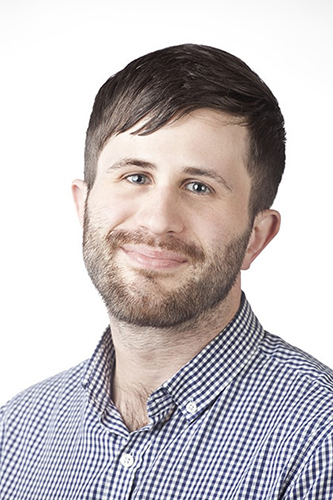 Steven Holmes first career was as a professional musician. His freshman year of college, he helped start a band that went on to gain moderate success. They toured the county for 7 years with over 200 shows per year, appeared at big music festivals like Lollapalooza and Bonnaroo, and on late-night TV with Jimmy Kimmel and Jay Leno. The band decided to take a break last year, and since Steven was newly married and wanted to spend more time at home, he decided to use his time to make a career change. He has always loved making things and working with computers and felt that software development would be a good fit for his creativity and problem solving.
Steven Holmes first career was as a professional musician. His freshman year of college, he helped start a band that went on to gain moderate success. They toured the county for 7 years with over 200 shows per year, appeared at big music festivals like Lollapalooza and Bonnaroo, and on late-night TV with Jimmy Kimmel and Jay Leno. The band decided to take a break last year, and since Steven was newly married and wanted to spend more time at home, he decided to use his time to make a career change. He has always loved making things and working with computers and felt that software development would be a good fit for his creativity and problem solving.
Steven had heard many positive things from friend who had attended NSS, but it was a chance encounter with a current student that solidified his decision. While working at a little shop, a regular customer came in so excited about a project he was working on at NSS that day that he had to show it off to everyone there. Excitement is contagious!
One of Steven’s favorite parts of the bootcamp experience, was the emphasis on software development being a team sport. This gave him the opportunity to learn a lot from his peers. Steven is also grateful to the instruction team for helping him get through roadblocks. He shared, “I remember about halfway through the front end, I was having a supremely difficult time wrapping my head around promises & AJAX calls. More than other concepts, these two things were particularly nebulous and hard-to-grasp. One afternoon, Joe Shepherd stayed late after class with me to spend some extra time with me helping to solidify my knowledge. Times like these have stuck with me in regards to what makes NSS and the instruction staff so dear to my heart.”
Trust the process, and trust your own brain. Things that are initially foreign concepts will eventually become intuitive tools that you can rely on. It won't be long, and you'll learn that you can start to trust your hunches. It's a remarkable feeling.
Steven’s front-end capstone, Lunchbox, gives you a newsfeed based on your interests so you can quickly find articles you want to read on your lunch break. The app was built with Angular 1.5 and Firebase. It uses web scraping from Node-libraries, Cheerio + Request, to curate the list of articles.
For his back-end capstone, Steven built a real-time sentiment analysis and visualization tool that analyzes tweets. His app, called Canary, was built with Django, the Twitter Streaming API, a Python package called TextBlob, and a MySQL database. TextBlob analyzes each tweet based on how many positive and negative words it contains and gives it a score. As tweets accumulate, a pie graph is built showing the positivity, negativity, or neutrality of the tweets.
During his job search, Steven continues to sharpen his JavaScript skills and learn React. He’s also reading about deeper object oriented programming concepts.
Listen to Steven’s interview with Clark Buckner about his time at NSS and check out Steven’s profile.
Mark Ellis
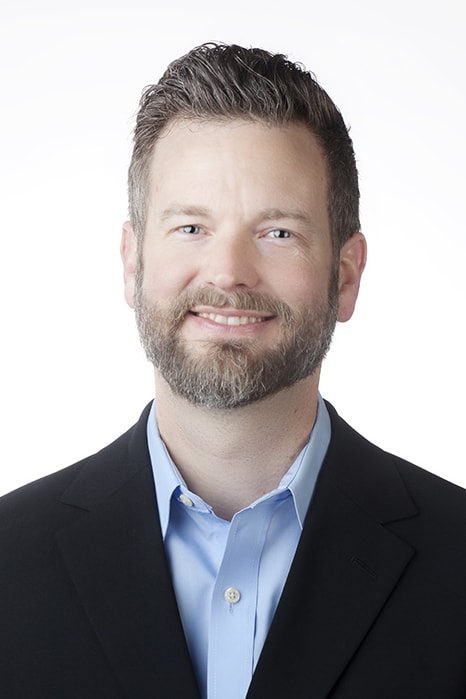 Mark Ellis spent 25 years touring the world doing live event production for several artists you’d recognize. He was tired of the road and wanted a career that would still challenge him to learn and grow, but let him sleep in the same bed every night. Mark has always had the knack for working on computers and has maintained computers for his friends and family. Mark has been able to transfer his production skills to software development: managing and working in small teams, learning new technology, and adjusting to the needs of clients.
Mark Ellis spent 25 years touring the world doing live event production for several artists you’d recognize. He was tired of the road and wanted a career that would still challenge him to learn and grow, but let him sleep in the same bed every night. Mark has always had the knack for working on computers and has maintained computers for his friends and family. Mark has been able to transfer his production skills to software development: managing and working in small teams, learning new technology, and adjusting to the needs of clients.
Mark first heard about NSS from a friend who is a senior developer. His friend worked with two NSS graduates and described them as “very sharp guys.”
As a part of Cohort 16, Mark shared, “the entire process is filled with roadblocks, but the instructors, fellow students and the entire NashDev community are there to help you negotiate through them. It’s peaks and valleys the entire six months and it’s AWESOME!” He loved the energy and shared interest in learning from the instructors and fellow students.
I like that every day is a new day in development and there are new challenges. I want to be challenged on a daily basis.
Mark encourages students not to spend too much time struggling on your own to find a solution. His advice? “Try three things and be able to explain, ‘I’ve tried these things and got these results. What would you do next?’” Your instructors and classmates are there to help.
Mark’s front-end capstone is a fantasy football (aka soccer) picker that helps users with their weekly player selections. A user is able to adjust their weekly selection by adding or removing players from their lineup based on points scored per player in the latest game week. For his data, Mark utilized multiple XML directories from another developer which he converted to JSON to parse and create his own API call. It was more work, but he learned a lot in the process. The app itself was built with JavaScript, Angular, Firebase, and Materialize.
For his back-end capstone, Mark built an app that saves notes about the restaurants you’ve been too. To build Restaurant Notes, he used Python/Django to create the RESTful API and Ionic2/Angular2 to create a hybrid mobile app to access the API. Mark hopes to focus on hybrid and mobile apps in his career and was proud that he was able to learn a relatively new language, Angular2, and have a working app within two weeks.
Mark is continuing to work on his back-end capstone, keep his JavaScript skills fresh, and look for side projects to work on.
Listen to Mark’s interview with Clark Buckner about his capstone projects and check out Mark’s profile.




